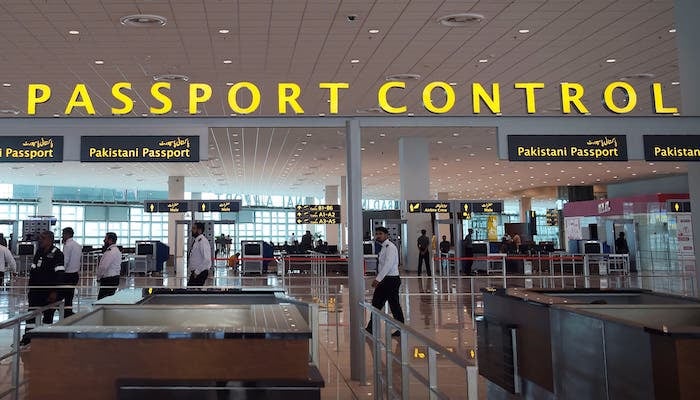Pakistan eases travel advisory for inbound UK, South Africa passengers
The fresh guidelines were issued on National Command and Operations Centre (NCOC) decision and will be effective January 5
KARACHI: The Civil Aviation Authority on Monday eased travel restrictions for inbound passengers travelling from the United Kingdom and South Africa.
The fresh guidelines were issued on the National Command and Operations Centre (NCOC) decision and will be effective January 5 and last till January 31.
As per the notification, Pakistani nationals with the short-term UK and South African visit visas and Pakistani passports, including work permit holders, or any type of visa issued by the British/ South African authorities are allowed to travel to Pakistan.
The CAA has also allowed diplomats and their families to travel to Pakistan from the UK and South Africa.
The passengers would need a negative PCR test result conducted 72 hours prior to travel. "However, any or all passengers traveling to Pakistan from the UK or South Africa will be subjected to PCR testing, quarantine or isolation and other stipulations as specified by the health authorities upon arrival in Pakistan," read the statement.
Additionally, passengers holding valid National Identity Card for Overseas Pakistanis (NICOP) or Pakistan Origin Card (POC) and having stayed in the UK or South Africa in the last 10 days prior may travel to Pakistan "with a negative PCR test conducted 72 hours prior to travel".
The guidelines said that "any and all passengers will also be subjected to Rapid Antigen Tests upon arrival in Pakistan whereby all negative testing passengers will be allowed to leave the airport with the advice to self-quarantine/ isolate for a period of five days".
Those who test positive will be subjected to quarantine at home until they test negative.
Countries including Pakistan placed travel restrictions and closed their borders to the United Kingdom after a new strain of the coronavirus was detected earlier this month.
The new strain, referred to by some experts as the B.1.17 lineage, is not the first variant of the COVID-19 pandemic, but it is said to be up to 70% more transmissible than the previously dominant strain in the UK.
It has since been detected in some European countries, South Africa, India, Japan, and Pakistan.
-
Security forces gun down 30 terrorists in multiple IBOs in KP: ISPR
-
MQM-P calls for new province in Sindh
-
US report validates Pakistan military edge over India: PM
-
Banned TTP poses serious threat to Pakistan security: UNSC panel
-
CM Afridi clarifies remarks on by-poll after ECP requests army deployment
-
Dubai sees 3.2m Pakistani passengers in 2025 as airport sets new milestone
-
Security forces kill 23 Indian proxy terrorists in KP's Kurram
-
Pakistan to construct island to boost oil exploration: report












